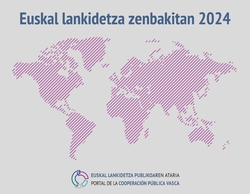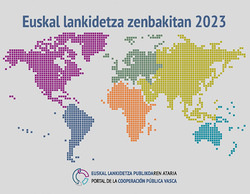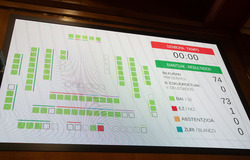International cooperation and development policies
We study how to reorient public policies and international cooperation to face the unsustainability of the dominant model of production and consumption.

International cooperation and development policies
Given the problems of development processes, there is a pressing need to address the dominant production and consumption model. Global threats include migration, inequality, governance, geopolitical and environmental issues, which, heightened by the COVID-19 pandemic, reveal the global health shortcoming and the limits of globalisation.
As regards the broad diagnosis in the 2030 Agenda and the Sustainable Development Goals (SDGs), the serious difficulties in its implementation and progress in key aspects impress on us the need to refocus public policies and international cooperation. We thus analyse issues such as the coherence needed between the policies, along with the rethinking of international cooperation and the connection between the local and the global to respond to those challenges.
Research lines
Policy coherence for sustainable development
In line with the global problems and challenges, we propose comprehensive approaches that go beyond the traditional ones in the form of Official Development Assistance (ODA). We believe that coherence of external and internal policies require further research and proposals regarding the possible systems, instruments and progress indicators in this line.
2030 Agenda and Sustainable Development Goals
The agenda approved in 2015 has meant a fundamental shift in the assessment of and approach to development problems, while also representing important international consensus. However, aspects such as its voluntary nature or the weakness of the implementation methods mean that its potential is questioned in practice. The agenda itself and its transfer to specific policies require a critical approach that allow changes to be addressed beyond the cosmetic.
The international development cooperation system
In a new context, where the very concept of "development" is in question and new paradigms appear, an international cooperation system still persists that needs to be updated and adapted to this new reality. We can see that reviewing its goals, instruments and effectiveness is fundamental, along with the focus on multilevel scenarios and the role of sub-state entities and those of civil society.
Policy analysis and its interaction in the global framework
We move beyond studying global frameworks and consider analyses and proposals in specific areas and cases to find alternatives to current production and consumption models. We here include rural development and food sovereignty policies, feminist and gender approaches, the role of the university, etc.
Cooperation policies in the Basque Country
Sub-state or decentralised cooperation has a long track record in the Basque Country. In this line of research, we study the policies of the main Basque institutions, with special emphasis on aspects such as transparency, innovation in stakeholders and instruments, assessment or applied research, in order to contribute to the progressive improvement of cooperation practices.
Team




Related news



